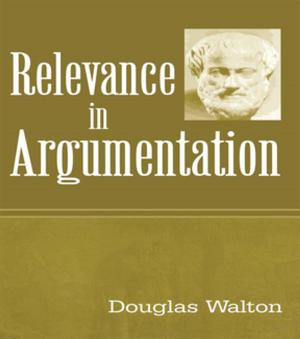Word and Meaning in Ancient Alexandria
Theories of Language from Philo to Plotinus
Nonfiction, Religion & Spirituality, Philosophy| Author: | David Robertson | ISBN: | 9781134781850 |
| Publisher: | Taylor and Francis | Publication: | February 17, 2016 |
| Imprint: | Routledge | Language: | English |
| Author: | David Robertson |
| ISBN: | 9781134781850 |
| Publisher: | Taylor and Francis |
| Publication: | February 17, 2016 |
| Imprint: | Routledge |
| Language: | English |
During the late Hellenistic and early Imperial periods (B.C. 50 - A.D. 300), important developments may be traced in the philosophy of language and its relationship to mind. This book examines theories of language in the work of theologians and philosophers linked to Ancient Alexandria. The growth of Judaism and Christianity in cultural centers of the Roman Empire, above all Alexandria, provides valuable testimony to the philosophical vitality of this period. The study of Later Greek philosophy should be more closely integrated with the Church Fathers, particularly in the theologically sensitive issue of the nature of language. Robertson traces some related attempts to reconcile immaterial, intelligible reality and the intelligibility of language, explain the structure of language, and clarify the nature of meaning. These shared problems are handled with greater philosophical sophistication by Plotinus, although the comparison with Philo, Clement, and Origen illustrates significant similarities as well as differences between Neoplatonism and early Jewish and Christian philosophy.
During the late Hellenistic and early Imperial periods (B.C. 50 - A.D. 300), important developments may be traced in the philosophy of language and its relationship to mind. This book examines theories of language in the work of theologians and philosophers linked to Ancient Alexandria. The growth of Judaism and Christianity in cultural centers of the Roman Empire, above all Alexandria, provides valuable testimony to the philosophical vitality of this period. The study of Later Greek philosophy should be more closely integrated with the Church Fathers, particularly in the theologically sensitive issue of the nature of language. Robertson traces some related attempts to reconcile immaterial, intelligible reality and the intelligibility of language, explain the structure of language, and clarify the nature of meaning. These shared problems are handled with greater philosophical sophistication by Plotinus, although the comparison with Philo, Clement, and Origen illustrates significant similarities as well as differences between Neoplatonism and early Jewish and Christian philosophy.















